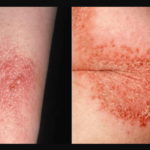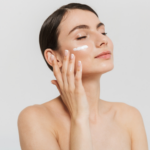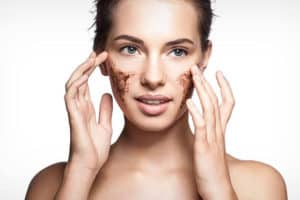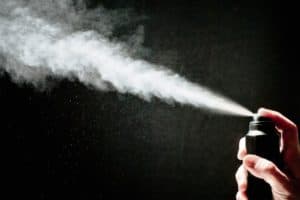Soap is a common household item that people use daily to maintain personal hygiene. However, while soap is intended to clean the skin, it can have harmful effects on the skin’s health. Overuse of soap can cause dryness, irritation, and even lead to chronic skin conditions that require medical attention.
Soap contains chemicals that can strip away the skin’s natural oils, leaving it dry and dehydrated. This can cause the skin to become flaky, itchy, and prone to cracking. In addition, soap can also disrupt the skin’s pH balance, which can lead to irritation and inflammation.
While soap is an essential part of maintaining personal hygiene, it’s important to use it in moderation and choose products that are gentle on the skin. By being mindful of the soap’s ingredients and using it only when necessary, individuals can ensure that they maintain healthy skin and avoid the harmful effects that soap can have on their skin’s health.
How Soap Affects Your Skin

As a common household item most people use soap daily for personal hygiene. However, it may come as a surprise that soap can actually be harmful to the skin. Here are a few ways that soap affects your skin:
Firstly, soap strips the skin of its natural oils. The skin has a natural protective barrier that keeps it moisturized and healthy. When soap is used, it removes this protective barrier, leaving the skin dry and vulnerable to damage. This can lead to skin irritation, itching, and even inflammation.
Secondly, soap can disrupt the pH balance of the skin. The skin has a slightly acidic pH, which helps to protect it from harmful bacteria and other irritants. However, soap is typically alkaline, which can disrupt this balance and make the skin more susceptible to infection and irritation.
Thirdly, some soaps contain harsh chemicals that can be harmful to the skin. For example, antibacterial soaps often contain triclosan, which has been linked to skin irritation and disruption of the endocrine system. Other soaps may contain fragrances or dyes that can also cause skin irritation.
Overall, it is important to be mindful of the type of soap you use and how often you use it. Consider using a gentle, moisturizing soap that is free from harsh chemicals and fragrances. Additionally, try to limit your use of soap to once a day, or even less if possible, to avoid stripping the skin of its natural oils.
Common Harmful Ingredients in Soap
Soap is a common household item that most people use on a daily basis. However, many people are unaware of the harmful ingredients that can be found in soap. Here are some of the most common harmful ingredients found in soap:
- Sodium Lauryl Sulfate (SLS): This ingredient is commonly found in soap and is known to cause skin irritation and dryness. SLS can also strip the skin of its natural oils, leading to further dryness and irritation.
- Fragrance: Many soaps contain artificial fragrances, which can cause allergic reactions and skin irritation. Fragrances can also contain phthalates, which are known to disrupt hormones and cause reproductive problems.
- Triclosan: This antibacterial agent is commonly found in soap and can cause skin irritation and dryness. Triclosan has also been linked to antibiotic resistance and hormone disruption.
- Parabens: These preservatives are commonly found in soap and can cause skin irritation and allergic reactions. Parabens have also been linked to hormone disruption and breast cancer.
It is important to read the labels of your soap products and avoid those that contain these harmful ingredients. Instead, look for natural and organic soap products that are free from these harmful ingredients.
Skin Conditions Caused by Soap
While soap is necessary for maintaining hygiene and cleanliness, it can also cause a range of skin conditions. Here are some of the most common:
- Dry Skin: Soap can strip the skin of its natural oils, leading to dryness and flakiness. This is especially true for people with sensitive skin or those who use harsh soaps.
- Eczema: Eczema is a chronic skin condition that causes dry, itchy, and inflamed skin. Soap can irritate the skin and trigger eczema flare-ups in people who are prone to the condition.
- Psoriasis: Psoriasis is a skin condition that causes red, scaly patches on the skin. Like eczema, soap can irritate the skin and trigger psoriasis flare-ups.
- Contact Dermatitis: Contact dermatitis is a type of skin inflammation that occurs when the skin comes into contact with an irritant or allergen. Soap can be a common irritant that triggers contact dermatitis.
- Acne: While acne is typically associated with oily skin, it can also be caused by using harsh soaps that strip the skin of its natural oils. This can lead to an overproduction of oil and clogged pores.
It’s important to note that not all soaps are created equal. Some soaps are formulated with gentler ingredients that are less likely to cause skin irritation. Additionally, using a moisturizer after washing can help to replenish the skin’s natural oils and prevent dryness.
Alternative Ways to Cleanse Your Skin
For those who are concerned about the harmful effects of soap on their skin, there are alternative ways to cleanse that are gentler and more natural. Here are a few options:
- Oil Cleansing: This method involves using a mixture of natural oils, such as olive or coconut oil, to cleanse the skin. The oil is massaged onto the skin and then wiped away with a warm washcloth. This method is gentle and effective at removing dirt and makeup without stripping the skin of its natural oils.
- Water Cleansing: For those with very sensitive skin, simply rinsing the face with warm water can be enough to remove dirt and oil. This method is especially useful for those who live in areas with hard water, which can be drying to the skin.
- Clay Cleansing: Using a clay mask to cleanse the skin can be an effective way to remove impurities without stripping the skin of its natural oils. Clay masks work by absorbing excess oil and drawing out impurities from the pores.
It’s important to note that while these alternative cleansing methods are gentler than soap, they may not be suitable for everyone. Those with very oily skin may find that oil cleansing doesn’t work well for them, while those with dry skin may need to follow up with a moisturizer after using a clay mask. It’s important to experiment and find what works best for your skin type.
Tips for Choosing a Soap That’s Safe for Your Skin

Choosing the right soap for your skin can be challenging, especially when so many products promise to do wonders for your skin. Here are some tips to help you choose a soap that’s safe for your skin:
- Look for soaps that are labeled “hypoallergenic” or “fragrance-free.” These soaps are less likely to cause irritation or allergic reactions.
- Avoid soaps that contain harsh chemicals, such as sodium lauryl sulfate (SLS) or parabens. These chemicals can strip your skin of its natural oils and cause dryness and irritation.
- Choose a soap that is pH-balanced. The pH of your skin is slightly acidic, so using a soap that is also slightly acidic can help maintain the natural balance of your skin.
- If you have sensitive skin or a skin condition such as eczema, look for soaps that are specifically formulated for your skin type.
- Consider using a gentle cleanser or body wash instead of soap. These products are often less harsh than traditional soap and can be just as effective at cleaning your skin.
Remember that everyone’s skin is different, so what works for one person may not work for another. It may take some trial and error to find the right soap for your skin, but taking the time to choose a gentle, safe product is worth it in the long run.
While soap is an essential part of our daily hygiene routine, it’s important to use it in moderation and with care. As this article has highlighted, using too much soap or using soap that is too harsh can have harmful effects on the skin. People with sensitive or dry skin should be especially cautious.

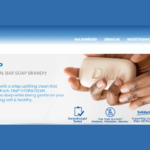
![Neutral Skin Tone Defined [and Best Colors for Neutral Skin] neutral skin tone](https://skincaregeeks.com/wp-content/uploads/2021/05/neutral-skin-tone-150x150.png)

